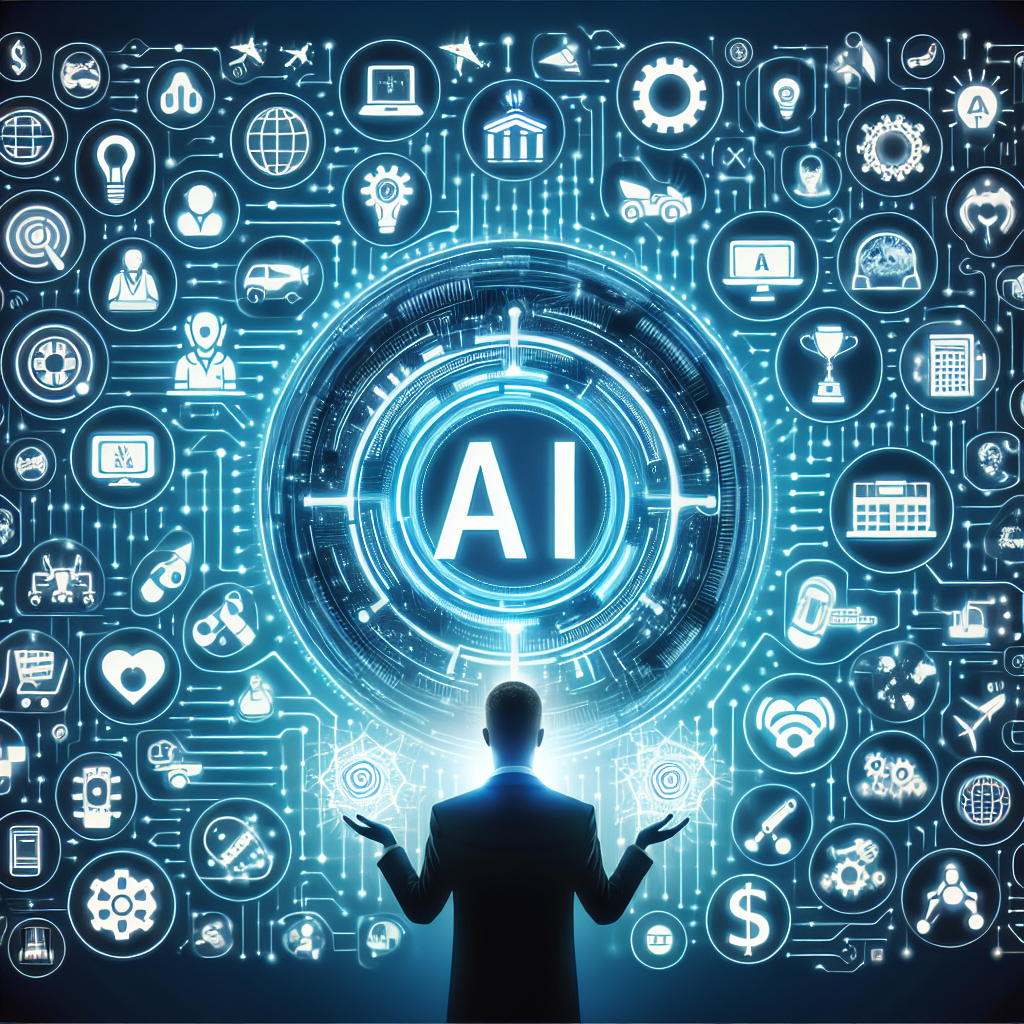Artificial Intelligence (AI) has been a rapidly growing technology that is revolutionizing industries across the globe. Its integration into various sectors has led to increased efficiency, productivity, and innovation. From healthcare to finance to manufacturing, AI is transforming the way businesses operate and providing new opportunities for growth. In this article, we will explore how AI integration is revolutionizing industries and the benefits it brings.
Healthcare Industry
One of the industries that have seen significant transformation through AI integration is healthcare. AI-powered tools and algorithms are being used to improve patient care, increase diagnostic accuracy, and streamline administrative tasks. For example, AI can analyze medical images to detect diseases like cancer at an early stage, helping doctors make quicker and more accurate diagnoses. AI is also being used to personalize treatment plans for patients based on their unique genetic makeup and medical history.
Finance Industry
In the finance industry, AI is being used to analyze market trends, detect fraudulent activities, and automate trading processes. AI-powered algorithms can process vast amounts of financial data in real-time, providing valuable insights for making investment decisions. Additionally, AI chatbots are being used by financial institutions to provide customer service and support, reducing the need for human intervention.
Manufacturing Industry
AI integration in the manufacturing industry has led to the rise of smart factories, where machines and equipment are connected and communicate with each other to optimize production processes. AI-powered predictive maintenance tools can analyze data from sensors and predict when equipment is likely to fail, allowing companies to schedule maintenance before a breakdown occurs. AI is also being used to improve quality control processes, identify defects in products, and automate repetitive tasks on the production line.
Retail Industry
In the retail industry, AI is being used to personalize the shopping experience for customers, optimize inventory management, and improve supply chain efficiency. AI-powered recommendation engines analyze customer data to suggest products that are likely to be of interest to them, increasing sales and customer satisfaction. AI is also being used to forecast demand for products, reduce stockouts, and minimize wastage in the supply chain.
Transportation Industry
In the transportation industry, AI integration is revolutionizing logistics and fleet management. AI algorithms can optimize route planning, reduce fuel consumption, and improve delivery times. Self-driving vehicles powered by AI are being developed to revolutionize the way people and goods are transported, reducing accidents and improving overall efficiency.
Benefits of AI Integration
The integration of AI into various industries brings a wide range of benefits, including:
– Increased efficiency: AI-powered tools can automate repetitive tasks, analyze data at a faster rate, and make decisions in real-time, leading to increased efficiency and productivity.
– Improved accuracy: AI algorithms can analyze vast amounts of data and identify patterns that humans may overlook, leading to more accurate predictions and decision-making.
– Cost savings: AI integration can help businesses reduce costs by automating processes, optimizing resource allocation, and reducing errors.
– Enhanced customer experience: AI-powered tools can personalize the customer experience, provide faster and more accurate responses to queries, and improve overall satisfaction.
– Innovation: AI integration is driving innovation in industries by enabling new products and services, improving existing processes, and creating new business models.
FAQs about AI Integration
Q: Is AI integration expensive for businesses?
A: The cost of AI integration can vary depending on the size and complexity of the project. While initial investment may be high, the long-term benefits of AI integration can outweigh the costs.
Q: Will AI replace human jobs in industries?
A: While AI may automate certain tasks, it is unlikely to replace human jobs entirely. Instead, AI is expected to augment human capabilities, improve productivity, and create new job opportunities in industries.
Q: How can businesses ensure the ethical use of AI in their operations?
A: Businesses can ensure the ethical use of AI by implementing transparent and accountable AI systems, ensuring data privacy and security, and monitoring AI algorithms for bias and discrimination.
Q: What are the challenges of AI integration in industries?
A: Some of the challenges of AI integration in industries include data privacy concerns, lack of skilled AI talent, regulatory compliance, and ethical considerations.
In conclusion, AI integration is revolutionizing industries by increasing efficiency, improving accuracy, reducing costs, enhancing customer experience, and driving innovation. As businesses continue to adopt AI-powered tools and algorithms, the potential for growth and transformation across various sectors is limitless. By leveraging the power of AI, industries can stay competitive, adapt to changing market conditions, and unlock new opportunities for success.

